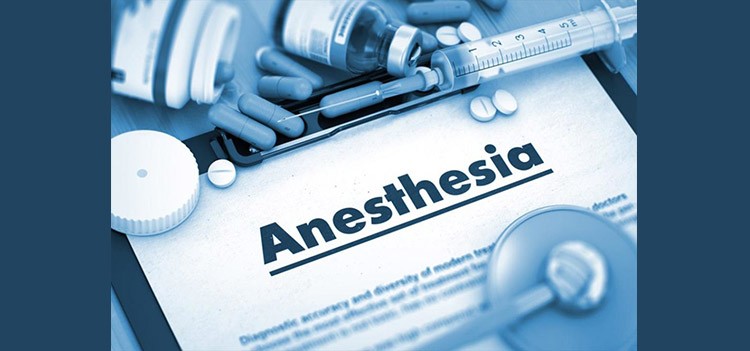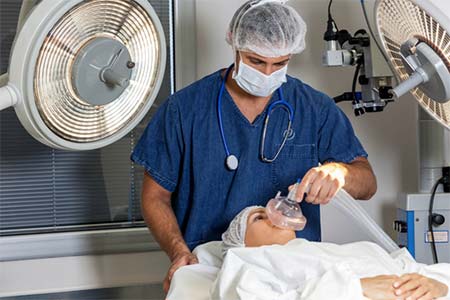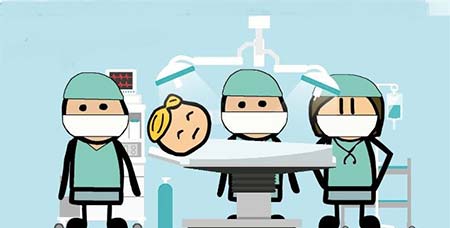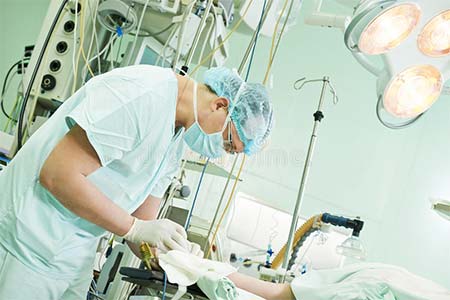Introduction to Anaesthesia Technology
The anaesthesia course equips the students with the techniques involved in anaesthesia administration, types of anaesthesia agents and also ensures them to closely monitor the patients under anaesthesia influence. The students will be learning about various subjects like fundamentals of the operation theatres, emergency wards, intensive care units (ICU), crucial cardiac-care units (CCU), trauma care centres, etc. The students of anaesthesia will also understand the real-time monitoring of the patients that are under the influence of anaesthesia. The anaesthesia students will be assisting the doctors and surgeons in operation theatres and emergency wards. The course has both theoretical and practical ways for helping the students and developing them into skilled and successful anaesthetists.
The B.Sc Anaesthesia course is the 3-years degree programme that can be chosen soon after the completion of the PUC/12th. The students should have studied any of the three subjects from the following: Physics, Chemistry, Biology/Zoology/Botany in their PUC or 10+2 or equivalent with a minimum 45% aggregate in all the subjects.
Reasons for studying Anaesthesia course
Anaesthesia is one of the most underrated courses in the field of medicine. Every year a large number of students who aspire for MBBS seats may not be successful in getting medical seats. In this disappointment these students overlook many other courses of allied health sciences. The lack of awareness has been the main issue due to which very few students join this course. The anaesthesia course offers many benefits for the students. Some of the them are listed below:
It is an exhilarating field
Anaesthesia technologists may put people to sleep but their jobs are anything but a snooze due to their acute nature. The work of anaesthesia technologists takes place in more acute situations. The field of anaesthesia is very practical and pragmatic because it is very interesting and intellectually satisfying. There are plenty of subspecialties within anaesthesia field that have their own importance. Majority of anaesthesia technologists work in operation theatre along with a variety of surgical specialities including eyes, cardiac or neuro or ENT. There is a dedicated field for paediatric anaesthesia and many choose to work in this field. Some may work in labour ward and intensive care units (ICUs) in hospitals.
Opportunity to enjoy a lot of variety
It may seem that working as an anaesthesia technologist may be limited on paper but in reality, it is extremely varied. The anaesthesia technologists care for patients of all ages across a broad range of medical conditions. From heart and brain surgeries to birth and traumas anaesthesia technologists work on many different types of cases. Apart from working in hospital operating rooms, the anaesthesia technologists are also required to work in other places. Their expertise is needed in different areas like invasive radiology, gastrointestinal endoscopy, electrophysiology and more.
Work-life balance is within reach
The work of anaesthesia technologists is demanding inside the hospitals, but outside the hospital anaesthesia technologists have an unusual benefit of being able to walk away. In fact, a whopping 50% of anaesthesia technologists claim that they can take a whopping 4 weeks of vacation annually. But this is not possible for regular MBBS doctors, because they have to be present in all the emergency situations. It may be difficult for them to take long vacations due to the nature of their work but the anaesthesia technologists enjoy this leisure. The quality of life in anaesthesia is good, the anaesthesia technologists enjoy leisure time at work. The anaesthesia technologists can easily maintain a healthy work-life balance because their nature of work is not as stressful as other medical fields.
Opportunity to help people
Being in a hospital is a stressful and scary experience for all medical professionals. The anaesthesia technologists are uniquely positioned to bring comfort to patients and their families through pain relief. The anaesthesia technologists have the ability and power to reduce the pains of a patient who is undergoing or undergoing surgeries. They can give a sense of relief for the sufferings of patients due to pains. This can be a very fulfilling experience in case of an anaesthesia technologist career.
Handsome Salaries
The anaesthesia technologists are well paid in hospitals and nursing homes. The increased demand for skilled anaesthesia technologists has increased the job opportunities. The organisations are ready to pay handsome salaries.
Training of Anaesthesia technology is excellent
The anaesthesia technologists get expertise training across the globe. The anaesthesia technologists are at the sharp end of medicine and get familiar with most of the life-saving and potent drugs and techniques used in patient’s treatments. Opiates, muscle relaxants and inotropes, sedative, pain suppressors, pain killers, etc are some of most important drugs that are life-saving in case of an emergency. The anaesthesia technology students get a chance to study about these drugs and also use them in case of emergencies.
Career progression is good for anaesthesia technologists
The anaesthesia technologists can easily advance in their careers. They can join higher studies in anaesthesia field. As they gain experience, they can become expert anaesthetists and can maintain a team of anaesthesia technologists. The anaesthesia technologists can easily grow in the ladder of their careers and reach top positions at a very less time. The career progression is good for skilled anaesthesia technologists in the relevant field.
Concluding Lines
The anaesthesia technologists are in great demand in recent years. They can find ample job opportunities across the globe. The changed lifestyle has resulted in increasing the number of surgeries. This has increased the demand for skilled B.Sc Anaesthesia technology students in different hospitals and nursing homes. The MBBS aspirants who have lost their MBBS seats can even join the medical field by joining this evergreen field of B.Sc Anaesthesia Technology course.




